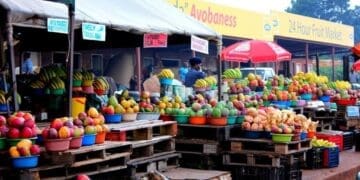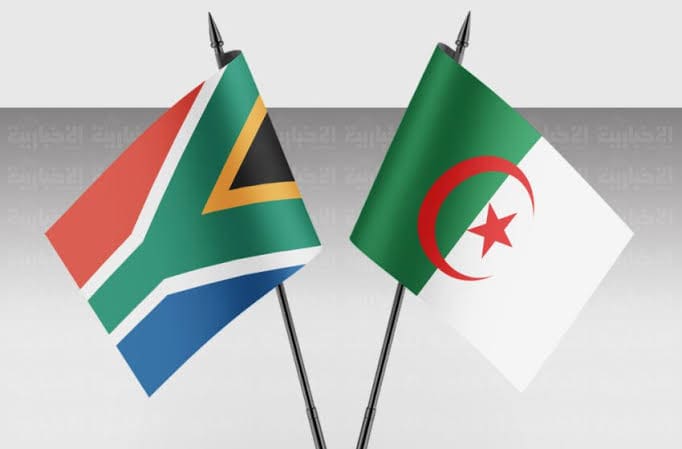Small enterprises in agriculture stand to benefit significantly from a new Memorandum of Understanding (MoU) signed between South Africa and Algeria.
The MoU, originally inked during the Bi-National Commission in December 2024, aims to establish trade routes and improve market access for goods and services between the two countries.
Minister of Trade, Industry and Competition, Parks Tau, confirmed that the Joint Trade and Investment Committee (JTIC) will be established in December 2025 to oversee the implementation of the MoU.
“The JTIC will act as a platform for continuous collaboration, helping our agricultural SMMEs expand into Algeria while sharing technical expertise across strategic sectors,” Tau said.
Algerian Minister of Foreign Trade and Export Promotion, Kamal Rezig, said they are committed to exploring opportunities in each other’s markets to enhance cooperation in sectors such as agriculture, agro-processing, oil and gas, automotive, infrastructure development, pharmaceuticals, manufacturing, and aviation.
This collaboration is expected to open new markets for South African agricultural producers, including those in plant-based sectors like grains, fruits, vegetables, nuts, and spices, as well as animal-based sectors such as livestock, poultry, dairy, aquaculture, and beekeeping.
“The agreement is a huge opportunity for small farmers and agro-processors who have long struggled to access international markets,” said Mashao Mohale, spokesperson for the National Agricultural Marketing Council (NAMC).
“With trade routes and better air connectivity, SMEs can now scale their operations and tap into Algeria’s growing demand for high-quality agricultural products.”
Agro-processing businesses also stand to gain.
The MoU also outlines cooperation in agro-processing, which is expected to benefit businesses producing packaged foods, juices, canned vegetables, and ready-to-eat meals.
“Establishing trade links with Algeria not only opens new markets but also strengthens continental integration,” said Tau.
Industry experts have highlighted that the reinstatement of the South Africa–Algeria air route will be beneficial. Faster logistics and reduced transport costs will make it easier for small businesses to export .
“Time-sensitive products like fruits, vegetables, and dairy must reach Algerian markets in optimal condition, which is critical for establishing a reputation for quality,” noted Lerato Nkosi, founder of Polokwane LT AGRO, an agro-processing SMME.
Tau said the partnership reflects South Africa’s broader commitment to continental integration under the African Continental Free Trade Area (AfCFTA), while supporting Algeria’s efforts to expand its industrial base.
Both countries agreed to explore sectoral opportunities, including oil and gas, automotive manufacturing, infrastructure development, pharmaceuticals and healthcare, aviation, and agriculture and agro-processing. These sectors were identified as strategic for job creation, innovation, and long-term economic growth.
Tau also met with Algeria’s Acting Prime Minister, Sifi Ghrieb, where discussions centered on the creation of a South Africa–Algeria Business Council.
The council will act as a vehicle to fast-track trade, encourage private-sector collaboration, and promote joint ventures between companies from both nations.
Ghrieb stated that the meeting was an opportunity to affirm the distinct strategic nature of the friendly and cooperative relations between Algeria and South Africa, while reviewing ways to strengthen the bilateral partnership in various fields.
The delegations also discussed the reinstatement of the South Africa–Algeria air route with the aim of facilitating people-to-people and commercial relations between the two countries. Restoring the route is expected to boost tourism, trade, and cultural exchange, while improving logistics for businesses seeking to expand operations across the two regions.
Wamkele Mene, secretary general of the AfCFTA Secretariat, said trade integration cannot succeed without addressing Africa’s fragmented air transport system.
“It should not take longer or cost more to fly,” he said.
“We must accelerate the implementation of the Single African Air Transport Market. Opening Africa’s skies will lower costs, expand passenger and cargo services, and bring our economies and our people closer together.”
Azwi@vutivibusiness.co.za






















































